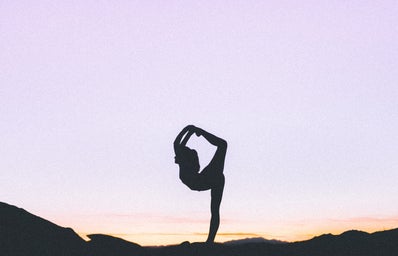Counting calories is perhaps the most commonly used but, at the same time, heavily criticized way of managing weight. Most of us have probably been through a stage of life, aka puberty, when we become so conscious about how our bodies look and have tried in one way or another to lose weight. I had a complicated relationship with dieting and counting calories a couple years ago. They worked sometimes, but the entire process was so stressful that I finally gave up. After that, the more I learn and read about nutrition and calories, the more I think the practice of counting calories is flawed and can be awfully inaccurate in some occasions.
First of all, our bodies react to food and calories intake in a much more complicated and personal way than an energy balance equation (energy balance=input-output) seems to suggest. In fact, as Dr. Jason Fung writes in his blog on calories and losing weight, the problem lies not in the equation itself but rather how energy input and output are often calculated. We may be able to know the number of calories from food we consume, but we are not sure about how our bodies are absorbing those foods. On the other hand, energy output consists of two things, BMR (resting energy expenditure) and exercise. Calories burned through exercise is fairly easy to track, but BMR, which makes up the majority of energy output, varies from person to person and cannot be controlled.
At the same time, getting the numbers right is extremely difficult. Numbers of calories marked on the nutrition labels of packaged food can be off. As for cooked food, the calories depend on the both the ingredients and how it is cooked. Since we as college students get most of our meals from on-campus dining halls, we do not know for sure what goes into each dish (how much oil or seasoning, is it pan fired or deep fried etc.). And without the help of scales and measuring tools, we usually cannot get the accurate serving size.
Just like how human body is not an equation, food is not a number either. The types of calories matter, so does the quality of the food. Obviously, protein, carbs and fat have distinct functions and leave us with different satiety. Of course, whole food and processed food are not the same, even if they contain the same amount of calories. Our bodies burn significantly more energy absorbing the former than latter.
And it is pretty easy to stress over the numbers. People at our age are vulnerable to eating disorders, and in many cases, it starts from negative body image, strict diet and wanting to lose as much weight as quickly as possible. Eating should be enjoyable, but thinking about recording everything and the fact that the daily calories intake will go up with each bite can take away the fun and add an extra layer of stress. Sometimes, counting calories can become some kind of black hole, incentivizing people to further cut their diet and keep eating less and less calories.
With all being said, you guys are probably wondering why would any rational human being, knowing all the negative side of counting calories, still decide to do it. Well, after staying away from it for about two years, I restarted last semester and have kept doing that on and off (I’m not that consistent during breaks) for half a year. The reason why I picked it up may sound rather silly: it was because a YouTube video on a professional ballet dancer trying to get to her performance weight by tracking calories. Clicking into it, I was as skeptical as I can be and assumed that the video would confirm the stereotype of “all ballerinas have anorexia”. But no, she approaches calorie counting in a very relax and down-to-earth manner. She is healthy. She exercises a lot, does not starve herself, and eats a variety of food, including a morning corndog and late night cereal. Her shinning personality and the overall positive vibe of the video made me wonder if my thoughts on counting calories would change if I try it again and do it in her way.
So I did, and I’m enjoying how it has turned out. Bearing in mind all the shortcomings of counting calories, keeping track of the food that goes into my body can provide me with the basic energy information and guideline to a more well-rounded diet. When I was researching for this article, I came across a blog titled “Counting Calories Is Flawed. But Here’s Why I Still Do It” and found out that we agree on a lot of things.
I treat my daily food entry more like a diary than a calorie calculator. By taking notes on food, I keep a record of not only the calories but also the micronutrients and macronutrients, which I should pay more attention to when deciding what to eat.
Although it’s far from being the entire picture, counting calories perhaps the most approachable way to get a sense of my daily energy intake. I have learned to not be fixated on the numbers. I am aware of approximately how much calories I need to maintain my current weight and the amount I burn on average through exercise, but there is absolutely no need to stress over getting the exact numbers. They are not going to be 100% accurate anyway.
Once I stop being obsessed over getting all the numbers right, counting calories becomes much easier and almost relieving. I am able to see where I am on my energy consumption without having to constantly think of and guess how much more I should eat. Of course, the number of calories and the types of food and nutrition that people need vary according to their physical conditions, levels of exercise, and goals. So there is not a diet or a way of managing diet that can possibly suit everyone. The rule of thumb is always, do what feels right and do not stress.



